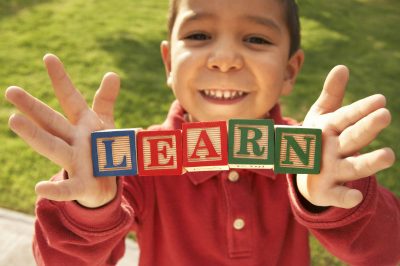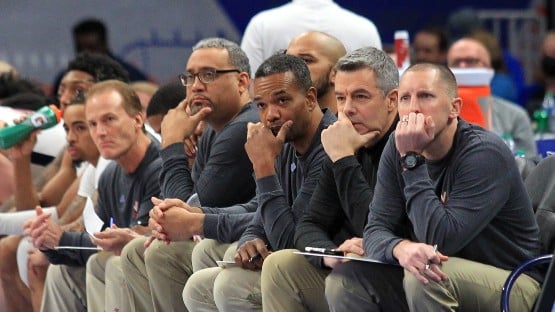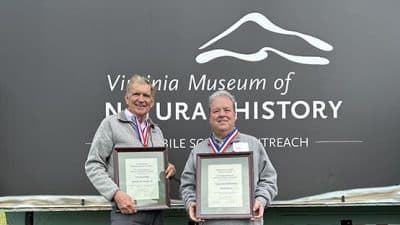
Teachers are uniquely important in the lives of their students. A teacher’s attitude can be contagious, leading to a successful learning experience or more negative consequences. All students flourish if their teachers are caring, fair, helpful, and passionate about their subject matter. A burned-out or disaffected teacher, on the other hand, is likely to cause a negative impact on a student’s life.
The importance of teachers in today’s society cannot be overstated. Without good teachers, students cannot move forward in their educational lives. Students and parents rely on teachers to care for their students during the day while imparting life and educational lessons. Peter Russo, an experienced high school teacher from Louisiana, explains how a teacher can make a positive impact on students both inside and outside the classroom.
In the Classroom
In order for a teacher to have a positive impact in the classroom, they need to be well-versed in and passionate about the subjects they are teaching. When a student can sense that a teacher isn’t invested in the subject, their attention is likely to falter, and they may cause problems within the class. It is also important to have a clear and direct manner with the students without being too harsh. There will always be days when teachers need to be more stern to keep their classes in order, but shouting and threatening students are never recommended.
Teachers who are effective classroom leaders have the gift of being able to manage a wide variety of student needs at the same time. Especially in elementary school classrooms, a teacher must be able to adapt their message to a range of ability levels. Some students will need more one-on-one support than others. A teacher must always keep an eye out for the students who are silent in class, because they may have difficulty absorbing the material.
Positive Interactions with Students
In order to build positive interactions with students, a teacher must be willing to get to know them on a personal level. Teachers often know a great deal more about a student than the student realizes. They talk to other teachers in the school and to parents about a student’s needs.
It is crucial that a teacher is fair and unbiased when dealing with students. Inconsistently applied rules or playing favorites will lead to resentment in the class. For example, giving a punishment to the entire class when it was only one or two students who engaged in the negative behavior will dampen the mood of a classroom and cause the students to lose trust in their teacher.
Taking Responsibility
A teacher must enable a student to take responsibility for their own learning. Teachers should give students an appropriate amount of responsibility for their age. By the time high school begins, a student should be able to manage their own coursework and reach out for help when needed. If a student does not learn these positive coping skills in the younger grades, they may have a great deal of trouble when they start high school. Students who are struggling often need extra help from the teacher. Teachers can meet with these students after school or they can refer them to proper resources like after-school tutoring.
Outside the Classroom
Teachers are equally influential outside the classroom. Many teachers take on the extra responsibility of running after-school clubs and activities, from sports to computer club. A teacher is able to build a better bond with the student body when they spend time with students outside the classroom.
Volunteering to run an after-school activity can be a drain on a teacher’s time and resources, especially because most school systems do not pay teachers very much in extra salary for running clubs and activities. This should not discourage a dedicated teacher from making an effort.
Sharing a subject that the teacher is truly invested in makes the teacher seem more approachable. For example, students who participate in math or robotics clubs will have a better bond with their teacher while at the same time comprehending classwork more thoroughly.
Teachers should uphold the same standards of behavior as they do in the classroom when they are teaching extracurricular activities. If a teacher is too lax after school, students may hear about the vulnerability and may exploit it in the classroom.
Special Needs Students
Students with special needs make extra demands on a teacher’s time and attention. These students need to be treated on an equal footing with their peers, even if they require more attention than the others. These students’ learning needs to be shepherded at the same time as students with fewer difficult circumstances.
A teacher should be able to work with paraprofessionals like one-on-one classroom aids, and should be able to work with the special education department at their school in order to produce the best possible learning results for special needs students. Treating students with different backgrounds compassionately will add to their classroom reputation. Parents of students with different abilities will also appreciate the care and attention given to their students.
Teachers are Uniquely Influential
A teacher can make or break a student’s educational experience. Having good teachers who truly care about each student’s educational outcomes and well-being is a huge benefit. Teachers who have a positive, charismatic attitude can create lifelong positive memories for students. If a teacher is regularly contacted by students from the past, they can be assured that they are making a positive impact.
It is crucial that a teacher is fair and unbiased toward their students. After-school activities should receive the same amount of dedication as classroom subjects. Special needs students need to be monitored and cared for with a higher level of attention.
Peter Russo understands the demands on today’s teachers and encourages them to seek out the resources that they need in order to do their jobs properly.










